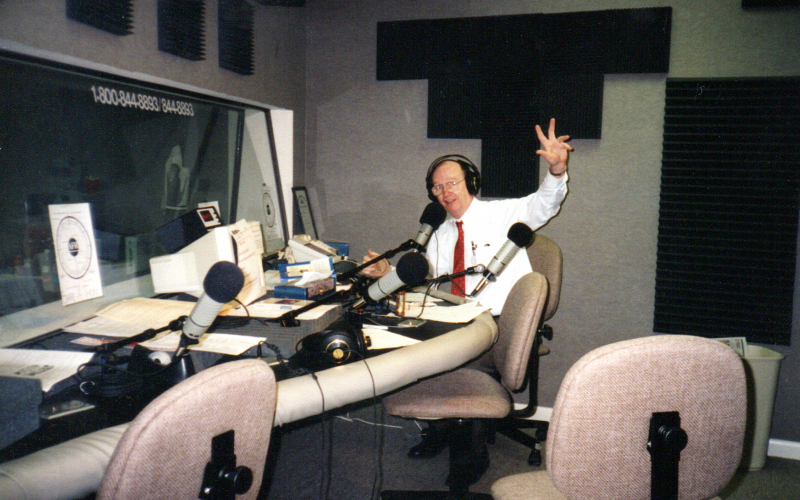What Are We Really Saving?
Sign up for a six month free
trial of The Stand Magazine!
I read this funny meme on Facebook: “Baptists are exempt from Daylight Savings Time. That hour was saved last year, and … once saved, always saved.”
Go ahead and laugh! That’s funny, even for someone raised a Southern Baptist, like me.
But honestly, it is that time of year again.
As of this Sunday, November 3, it’s time to turn back our clocks so we can “Fall Back” into Standard Time. Then, our clocks will run that way until Sunday, March 9, 2025, when we change them and “Spring Forward” again for a few months.
It’s nothing new. Humans have been manipulating clocks for over 100 years in supposed attempts to make better use of the sunlit hours of each day. But the truth is, even though we can change the clock, we cannot change time. As Daniel 2:21 reminds us, God alone changes the time and the seasons.
Of course, Genesis 1:16 declares that “God made two great lights – the greater light to govern the day and the lesser light to govern the night.”
And Jeremiah 31:35 tells us that it’s the Lord “who appoints the sun to shine by day, who decrees the moon and stars to shine by night.”
So, wouldn’t it just be easier to follow God’s clock with the rising and setting of the sun?
I vote for that!
Of course, I am just one person, and I know this whole time-change deal is very controversial. In fact, when given a choice of Standard Time (ST) versus Daylight Savings Time (DST), multiple polls showed that around two-thirds of Americans preferred the year-round use of ST over that of following DST throughout the entire year.
But when a third polling option was offered – to use DST for merely a portion of the year as we do now – the numbers changed a bit. Interestingly, 28% of Americans wanted things to stay the same, with DST observed from the second Sunday in March until the first Sunday in November.
Let me say unequivocally that I was not among that 28% of people!
As I already stated, the rising and setting of the sun play a big part in my sleeping and waking schedules. And the older I get, the more naturally that daylight controls my sleep cycle.
Yes, I tend to think more along the lines of Benjamin Franklin, when he once wrote, “Early to bed, early to rise, makes a man healthy, wealthy, and wise.”
Ironically though, in 1784, during the time when Franklin was living in Paris as an American envoy to France, he wrote a satirical letter to the Journal de Paris, advising French citizens to awaken earlier on summer days, to help cut back on candle and lamp oil usage. But he did not go as far as to suggest pushing back the hands of their clocks.
How wise of him! For again, the sunrise and sunset are such natural indicators of when to work and when to rest.
Now, I know full well that the entire world can no longer work only during the day. Like all of you, I am grateful for the men and women who guard our streets at night, tend to our sick loved ones, and carry out the countless other jobs that keep us going as a nation.
And yes, I love those long, lazy summer nights when we get to stay outside a little longer, doing the things we enjoy so much. Things like grilling, swimming, fishing, or simply sitting in the silence of a late sunset with the ones we love the most.
But still, I think we complicate things too much with DST. I honestly believe we would sleep more soundly, feel much better, and work more productively by observing year-round ST.
Many scientists and researchers agree.
According to John Hopkins’ Bloomberg School of Public Health, “Sunlight is the most powerful synchronizer of our circadian rhythms – the internally generated clocks our bodies follow.”
So, is DST all that it is cracked up to be? Is it better for the economy, safer for public health, and more conducive to an active lifestyle?
Not necessarily.
Economically, studies have indicated that overall productivity decreases after this time change, with the Monday after the spring change of time even called “Sleepy Monday.” Some scientists even go as far as saying that human clocks never fully adjust to DST. Consequentially, negative results of this time change also involve a decrease in quality of life, an ever-increasing susceptibility to illness, and growing complaints of tiredness.
DST was first intended to save national energy resources of oil and candles, but technology has changed drastically over the past century. As such, the extended use of daylight hours causes people to use more electricity for lighting, heating, air conditioning, and entertainment devices.
Health-wise, studies have proven that even changing human sleep patterns by one hour can adversely affect our natural circadian rhythm. Some research even shows slight increases in heart attacks, cluster headaches, car accidents in morning hours, and male suicide rates, especially in the Northern states which see even fewer hours of sunlight due to DST.
Other studies also suggest that the time change negatively impacts mood disorders, depression, anxiety, and substance abuse. And researchers continue to study Seasonal Affective Disorder, a relatively new field of medical research into the anxiety and depression caused by the lack of sunlight.
As for more active lifestyles, DST really does offer extra daylight hours to spend outside. For working parents, this can mean more active time spent with their children after work. But medical experts also warn parents that DST can disrupt the needed sleep cycle in children and teens as well as adults.
Normally, children need anywhere from 8-12 hours of sleep daily, depending upon their age. With DST, those few added hours of activity can lead to difficulty in falling asleep and ultimately cause sleep deprivation. For kids and teens, this deprivation can negatively impact overall health, growth, mood swings, learning, and even quality of life.
Despite all these arguments, the debate between DST and ST still rages. And still – our reality remains the same: The clocks will “Fall Back” this Sunday, November 3, whether you or I like it or not.
But at least we won’t be late for church this Sunday … unless we forget to set our clocks back an hour. Then, we might just be the first ones there.
Oh, wait!
For those who are Baptist, simply disregard this entire blog on Daylight Savings Time. After all, once saved, always saved!

Sign up for a free six-month trial of
The Stand Magazine!
Sign up for free to receive notable blogs delivered to your email weekly.



















